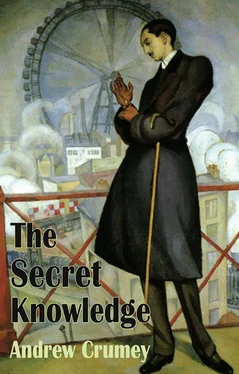Abrupt transitions suggest the influence of Mahler; hurrying onwards to the recapitulation, Adorno is irritated by consecutive fifths that feel almost barbaric. But Beethoven, he realises, is the key. Thomas Mann, when he needed to invent a composer for his novel, called Adorno to his aid, and the result was a masterpiece. Mann and Carreau have something in common. Or is it Carreau and Adorno? Are we all counterfeiters? The thought of that stupid woman conned by her husband for years over this… this… extraordinary concoction. The strange fact is that for all its manifest flaws, the work displays genuine if modest artistic talent. It’s about as good as anything Adorno himself ever composed. Not a masterpiece, no, such things are as infrequent as faithful husbands. But even were it average, were it no better than the work of any music student, that would still make the hoax a most striking one. And all for the most inconsequential of motives.
Beethoven’s music represents the social process; the way in which the part can be understood only in relation to the totality. Yet this organic wholeness is also the mutual estrangement of individuals; Carreau-Klauer acknowledges, in the first movement of The Secret Knowledge , the tonic-mediant relationship so characteristic of Beethoven, but instead of merely imitating he highlights its strangeness. Only ears tired by the sounds of industry can fail to notice the abrupt juxtapositions and shocking montage that Beethoven made into a style, and that this fictitious composer whose work Adorno now plays has managed, albeit naively and intuitively, to comprehend.
He has spoken to Ulrike about Beethoven. Fundamentally she prefers the Rolling Stones but won’t admit it. There lingers in her hesitation to accompany him to concerts, not fear of exposure, but suspicion that the whole of the so-called classical repertoire constitutes bourgeois hegemony, when really its finest works are both its expression and negation. The significance of recapitulation is its emphasis: the identity of the non-identical. In those atavistic consecutive fifths Carreau-Klauer involuntarily affirms the fundamental inadequacy that was, after all, the initial impulse. The Frenchwoman loved Klauer, so Carreau had to become Klauer. The music is a process of becoming that is forever unfinishable. There can be no ending to it — until Adorno stops playing.
Two days later he gets another phone call at the university. This time he’s expecting a journalist or radio producer wanting to know his views about the student movement; instead it’s a man who gives a name Adorno doesn’t recognise and says, “I believe you spoke with Yvette Carreau.”
“Who? Oh yes, the French lady.”
“She told you about a certain book?”
“I have it.”
A pause. “Perhaps we could meet to discuss this.”
Please not another pointless stroll past the flowerbeds. “Come to my office,” Adorno says; they agree an appointment and he hangs up. The country’s in a rising state of turmoil and there are people pestering him with trivialities. The book is in his drawer in the office; he thought of trying to find a colleague who might understand the coded symbols but his curiosity evaporated as soon as the item was out of sight. Instead he’s been thinking about the problems of the Missa Solemnis . No themes, no development. Omission as a means of expression.
He gives a seminar on eternity. Ulrike is there, taking notes and hardly looking at him. What if she got pregnant? Says there’s no chance but anything’s possible. Good that he and Gretel never had children. No way to perceive the little mites except in relation to one’s own generation whom they can only despise. The student protests are a manifestation of social infantilisation. Relate this to the growing tendency to remain childless.
“Are you saying that immanent and to-be-completed eternity are distinct?” a student asks him. Adorno says nothing, he’s lost his train of thought. Everything is a void and the students look at each other, even Ulrike stops writing.
One of them turns to his companion. “I think he’s saying there is no eternity. It only feels that way.”
When he goes to Ulrike’s apartment building later that day and presses the entry buzzer he gets no reply. And yet they had an arrangement, she told him to come at exactly this time. She must have gone out briefly, he waits. Eventually a dark-skinned foreign woman comes and lets herself in, he follows her and takes the lift to the third floor, tries Ulrike’s door but of course it’s locked. Keeps waiting until at last, furious, he goes home. So this is how she tells him it’s over.
The man comes to see him about that wretched book. The appointment is in his diary but Adorno is in the middle of writing about dialectic in the Eroica when the secretary knocks and reminds him, then shows the fellow in.
“Laurent Oeillet.” He extends a hand, though the first thing Adorno notices apart from his French accent is the eye-patch; a war-wound, perhaps, he’s old enough to have been in the Resistance or Wehrmacht.
“You wanted to talk to me about this.” Adorno opens his drawer, rifles beneath some student essays that have been deposited there in the last few days, and brings out the thin yellow book which he drops on his desk. Oeillet’s single eye is momentarily transfixed by it, then sends its sparkle once more at Adorno who invites him to sit down.
“What story did Madame Carreau tell you?” Oeillet asks. “You know she thinks she can hear messages from aliens on her radio?”
“She struck me as having a lively imagination.”
“A polite way to put it.”
“She herself said the story was fiction. Now are you going to give me a different version?”
The secretary knocks again and asks if the gentlemen wish coffee. University life these days, thinks Adorno, is so much less pleasant than it used to be, so much less conducive to thought. More like being in a cafeteria.
“I was a friend of the late Monsieur Carreau. He was a fine man. His business interests brought him to Germany not long after the war ended; he ran a small plant producing thermionic valves, later he got into electronics. His wife, his very lovely wife, unfortunately developed mental problems. She spent time in an institution.”
“What about the lover she lost, Klauer?”
“Madame Carreau is what one might charitably call a romantic.”
“She says this book belonged to my friend Walter Benjamin.”
“And you believe her?”
“Carreau got it from him in Spain in 1940.”
Oeillet laughs. “Louis came across it not long before he died.”
It is an interesting problem: two stories, wholly contradictory, either of which could be true. Oeillet leans forward in his chair, about to continue, but the coffee arrives. When the secretary departs with her tray and closes the door behind her Oeillet says, “I should like to buy the book.”
The proposal is more distasteful than the coffee; Adorno nearly spits what’s in his mouth, but swallows. “You’ve come for that?”
“I’m a collector and Louis intended me to have it.”
“His wife evidently doesn’t. And whatever her mental condition, she happens to be the one still living.”
Oeillet is barely able to conceal his displeasure. “Natural courtesy would be to give it freely to its rightful possessor; instead I show you the favour of making a fair offer.”
Adorno, too, is displeased. “The courtesy was mine, in receiving you here. It is you who have made of this meeting a financial transaction, and in relations such as those, courtesy plays no part.”
“Fifty marks,” Oeillet says abruptly. “More than it’s worth.”
“And less than I have imminent need of.”
Читать дальше











